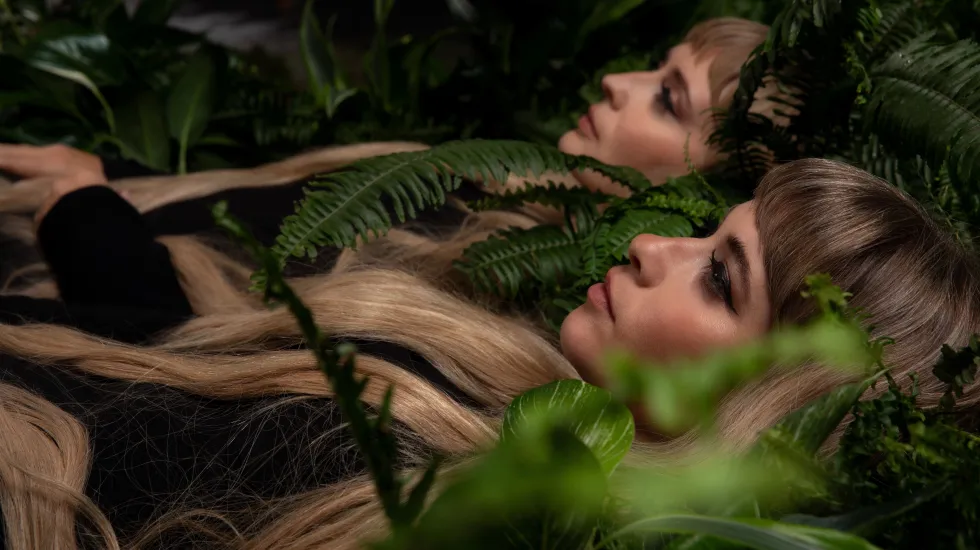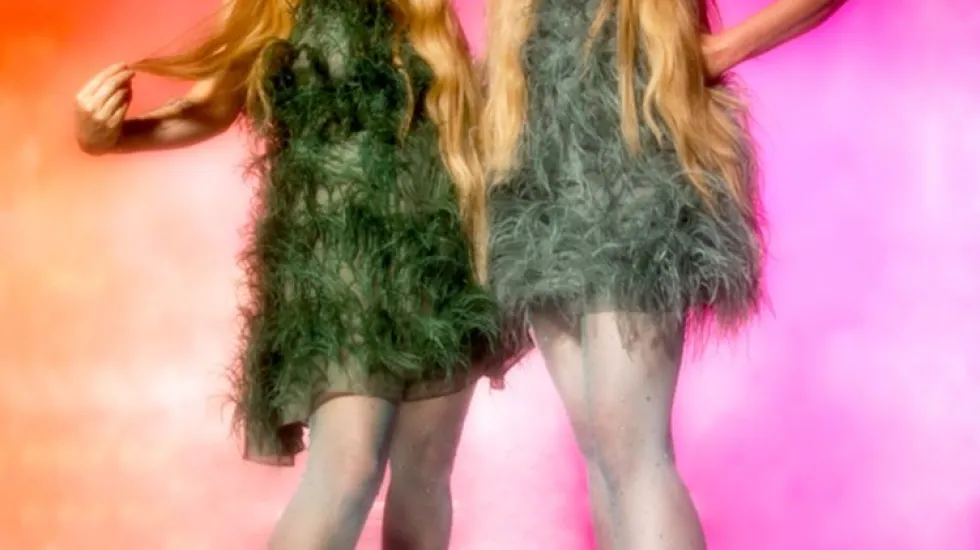
Even if you haven’t heard of Lucius, you’ve definitely heard them. The main talents in the indie pop act, Holly Laessig and Jess Wolfe, have been critical darlings since their self-released debut, “Songs from the Bromley House,” came out in 2009, followed by their label debut “Wildewoman” in 2013.
But as of late, the two power vocalists (who first met as students at Berklee College of Music) also have been go-to collaborators for a who’s who of topline music colleagues.
Laessig and Wolfe’s perfectly harmonized voices take the spotlight on The War On Drugs’ 2021 hit “I Don’t Live Here Anymore”; they once dominated the stage with Roger Waters across the span of his 2017-2018 international tour, and the two appeared on several tracks on Ozzy Osbourne’s 2020 “Ordinary Man” album. Not to mention co-written works or guest spots with Chicago’s own Mavis Staples and Jeff Tweedy as well as Sheryl Crow and Harry Styles (the latter even causing a kerfuffle after he failed to credit them appropriately on “Treat People With Kindness”).
“It does kind of feel like one leads to the next leads to the next. Maybe one person hears of us through one song, and then we meet somebody through another experience. I don’t know how we’ve been gifted all of that,” said Jess Wolfe in a recent conversation while in the midst of a club tour to promote Lucius’ new album “Second Nature” (out now on Mom + Pop Records), also featuring drummer Dan Molad and guitarist Peter Lalish.
“I hope it would have something to do with them liking what we do [in Lucius], but I do feel especially lucky that we’ve been chosen to have a presence on so many types of artist’s projects. It’s a great joy for us, and we get to see music in a new light every time we collaborate with a different mind.”
It all came full circle when alt-country star Brandi Carlile enlisted herself to produce the 10-track stunner “Second Nature” (along with Grammy-winning Dave Cobb), after having featured Lucius in her works for a number of years. She even went so far as to bring the ladies to Joni Mitchell’s L.A. house for an invite-only, star-studded jam session where Sir Paul McCartney himself liked what he heard.
In addition to producing the album, Carlile also appears with Sheryl Crow on the ebullient track “Dance Around It”; several songs on the record were written in Crow’s Nashville pad.

Name-dropping aside, there is a magnetic orbit that Lucius keeps that draws in the stars, and this time around having such strong female energy in the process became a godsend. The album deals with strong themes of motherhood (Laessig recently welcomed a baby) and wifehood (Wolfe was going through a divorce with Molad) while also bringing in a wide range of sounds. The disco splendor of the title track, the pop aplomb of “Next to Normal” and the heartstring-pulling ballad “White Lies” are just some of the standouts.
“Brandi has always been such a champion to other badass women and the idea of lifting one another up as opposed to approaching other artists as competition. It’s something we’ve always felt strongly about and Brandi felt similarly,” says Wolfe, all too aware of how often female pop stars can be pitted against one another and wanting to rise above it. “For her to be such an ambassador to other women in music is a thing we not only strive to do but also she’s opened her doors to us in such a way that we are forever grateful. It’s impossible to not want to pay that forward.”
Lucius has done just that, tapping guitar phenom Celisse to open up their latest tour dates, with Wolfe calling her “a firecracker, amazingly talented and infectious.” And if you saw Celisse recently appear with Lucius and Crow in a rousing performance of “Dance Around It” on “The Late Show With Stephen Colbert,” you know it’s no hyperbole.
Celisse will be on tap at the May 20 show at Metro, before Lucius’ dance party gets underway. Because, as Wolfe attests to, even though “Second Nature” deals with some heavy themes, the album is Lucius’ way of showing you can find a way out of the darkness. Or as Forbes said, “a candidate for the feel-good record of the year.”
“The content of the songs, the lyrics, are sad, but it doesn’t make you feel like you are sitting in it or delving in it. It’s about finding a way to push it out of you,” Wolfe shared, noting that the isolation and fear of the pandemic and the anger and sadness that came out of the death of George Floyd and the societal uprising that followed were another background in the writing process. “We can all be in it together, we can fake it ‘til we make it and find a way to get out of this. … Art is a means of survival – whether it’s an escape or really convincing you through the visualization and messages that we can actually overcome.”







